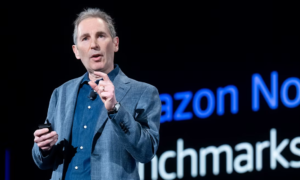Technology Secretary Peter Kyle just ceremonially “flicked the switch” on what could reshape Britain’s AI ambitions. The Isambard-AI supercomputer in Bristol has gone fully operational, marking a pivotal moment for the UK’s push to become an “AI maker rather than an AI taker.” This isn’t just about raw computing power—it’s about whether Britain can compete with global tech giants on home turf.
Inside the Launch
The UK’s most powerful supercomputer officially came online in Bristol this week, with Technology Secretary Peter Kyle symbolically activating the machine. Isambard-AI now joins Cambridge’s Dawn supercomputer to form Britain’s public AI computing backbone.
The timing isn’t coincidental. The government simultaneously unveiled plans for AI Growth Zones across Scotland and Wales, backed by billions in investment. These zones represent Britain’s strategy to decentralize AI development beyond London’s tech corridor.
Built by the University of Bristol using public funding, Isambard-AI packs serious hardware: over 5,400 Nvidia GH200 Grace Hopper Superchips running on Hewlett-Packard infrastructure. That’s enough processing muscle to rank 11th globally among the world’s 500 most powerful commercial computers.
The machine isn’t starting from scratch. Parts of Isambard-AI were already crunching data for medical vaccine research in January. Now fully operational, it will tackle broader public challenges—from slashing NHS waiting lists to developing climate change solutions.
The government promises a 20-fold expansion of this AI Research Resource over the next five years. That’s an ambitious timeline, especially considering the global competition for AI hardware and talent.
Why This Could Change Things
This move puts Britain in direct competition with tech superpowers who’ve been hoarding AI computing resources. While Google, Microsoft, and Meta build private AI empires, the UK is betting on public infrastructure that researchers and institutions can actually access.
The healthcare applications alone could be transformative. AI-powered drug discovery typically requires massive computational resources that most universities and research hospitals simply can’t afford. Isambard-AI levels that playing field.
Climate modeling presents another compelling use case. Weather prediction and climate simulation demand the kind of parallel processing that traditional computers handle poorly. Think of it like trying to solve a million-piece puzzle with one person versus a thousand—the supercomputer approach wins every time.
The economic implications extend beyond immediate applications. Kyle’s government is training a million students in AI skills while preparing 7.5 million workers for an AI-integrated economy. That’s not just workforce development—it’s industrial policy.
What Officials Are Saying
Kyle told BBC economics editor Faisal Islam that AI would enable “huge, unimaginable advances in the cure of disease.” He acknowledged public anxiety about AI’s impact on jobs but emphasized that “AI is going to happen to Britain. What we can do, and what we have a choice over, is how it happens in Britain.”
David Hogan, Nvidia’s European vice president, called Isambard-AI a “truly transformational machine” but noted it was “just a starting point.”
GazeOn’s Take
The hardware launch is the easy part. The real challenge will be whether Britain can attract the AI talent needed to maximize these resources. Silicon Valley and Chinese tech hubs aren’t standing still—they’re doubling down on both computing power and human expertise.
Kyle’s emphasis on training millions of workers suggests the government understands this reality. But training programs and actual AI competency often have a significant gap. The success of this supercomputer initiative will ultimately depend on whether Britain can build an AI ecosystem, not just AI infrastructure.
Still, this represents the kind of strategic thinking that’s been missing from many national AI strategies. Instead of just regulating AI or hoping private companies will share resources, Britain is building public capacity.
The Road Ahead
An AI strategy group including Google DeepMind’s Pushmeet Kohli, Royal Society’s Alison Noble, and Engineering and Physical Sciences Research Council’s Charlotte Deane will publish recommendations this autumn. Their guidance could determine whether this supercomputer becomes a genuine competitive advantage or an expensive science project.
Will public AI infrastructure give Britain the edge it needs in the global race? The next few years will tell us if this bet pays off.





















